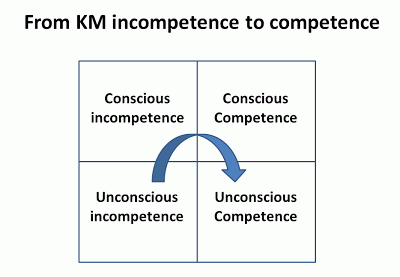Artificial Intelligence will change Knowledge Management as we know it
I recently came across this blog post by a start-up that is
developing an Artificial
Intelligence that is being trained to read and write at the level of a
specialized human analyst and produce briefings in human language based on a
set of different information resources. It’s just one example of many different
companies that are currently working on this challenge. The obvious clients are
intelligence agencies, governments, or news agencies, but eventually this will enter
all of our everyday work very soon.
I thoroughly believe that this is what knowledge management
in large organizations will look like in 10-15 years from now. In my organization, we’re challenged
daily to consolidate the key lessons and insights from all
our country-level programmes and experiences, lest meaningfully combine them
with information, trends and insights from the larger development sector. We
complain that we’re overwhelmed by the information overload that social media,
Yammer and knowledge networks impose on us, and retreat to focusing on a narrow
set of information that confirms our biases, pretending we know what we need to
know, when in fact we always only have a small piece of the puzzle. Artificial
Intelligence promises to overcome this dilemma, as it will have immediate
access to all information available, and can do the necessary analysis for us.
We might not be quite there yet to make this practical for organizations like UNDP, but we’re getting closer and closer. Last year we as UNDP KM team at HQ engaged with a well-known AI systems provider, and while both organizations were not quite ready yet to commit partnering on an AI system that can make sense of unstructured texts, trends, insights and lessons in the development sector, will have to get real about this soon if we as an organization want to be ready for what is to come. To quote the same article above: “With technology that can read and write, you have the flexibility to generate custom insights in any format or level of detail. If you’re a subject matter expert, Primer can tell you a detailed story that takes your knowledge into account. If you’re new to a subject, it can generate an introduction to get you up to speed quickly. If you have an interest in a particular angle on the story, or a geographic lens that you want to zoom in on, the insight can be customized for you. Imagine the possibilities if you had one thousand analysts working for you, all day, every single day. What questions would you ask, what kinds of briefings would you have them prepare?”
We might not be quite there yet to make this practical for organizations like UNDP, but we’re getting closer and closer. Last year we as UNDP KM team at HQ engaged with a well-known AI systems provider, and while both organizations were not quite ready yet to commit partnering on an AI system that can make sense of unstructured texts, trends, insights and lessons in the development sector, will have to get real about this soon if we as an organization want to be ready for what is to come. To quote the same article above: “With technology that can read and write, you have the flexibility to generate custom insights in any format or level of detail. If you’re a subject matter expert, Primer can tell you a detailed story that takes your knowledge into account. If you’re new to a subject, it can generate an introduction to get you up to speed quickly. If you have an interest in a particular angle on the story, or a geographic lens that you want to zoom in on, the insight can be customized for you. Imagine the possibilities if you had one thousand analysts working for you, all day, every single day. What questions would you ask, what kinds of briefings would you have them prepare?”
Now, technology can always only be one part of the solution.
It is important to keep in mind Dave Snowden’s adage that if you have $1 to
invest in KM, invest 99 cents in connecting your employees over shared
opportunities and 1 cent on content. Connecting people has always been
(and will always be) at the center of knowledge management, where we try to connect staff to those who have the skills, capacitating them to identify
the right people, enable them to collaborate and research in real time and turn the result of
that into actionable insights. It’s why other UN organizations have often
looked to UNDP for KM advice, because it regularly chose to make strategic
investments in connecting and fostering networking among its staff, being the
first UN agency to pioneer
email-based knowledge networks in 1999, the first to introduce
organization-wide corporate social networking with its award-winning
platform Teamworks in 2009, and continuing that trajectory with Yammer
(among other things) today. Connected people are the ‘operating system’ of any
meaningful KM effort that allows real-time collaboration within a human
context that can be turned into actionable insights.



Comments